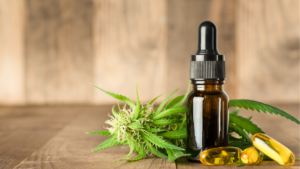A lack of motivation can happen to anyone, in fact most people will experience it in one way or another in their lifetime. While a lack of motivation may be common, understanding the underlying causes and solutions for coping are not as commonly discussed.
Choosing Therapy lists the ten potential reasons for a lack of motivation as the result of:
- A stress-related condition, such as adjustment disorder
- Chronic stresses that one cannot escape (toxic stress)
- Feeling overwhelmed
- Lacking activities that one enjoys
- Putting the care of others before yourself
- Burn out
- Inflexibility
- Life-changing events such as death or the loss of a relationship
- Anxiety or self-doubt in reaching a goal
- Depression or depressive episode
Avolition is defined as a lack of interest or engagement in goal-directed behavior. It is often an associated symptom of schizophrenia. Researchers continue to understand how motivation affects adults and investigate beneficial interventions. What has been found to date is that lack of motivation is greater among those with unmet needs regarding daytime activities, psychotic symptoms, behavioral problems, and addiction problems.
There is a common belief that increased cannabis use leads to a lack of motivation. However few studies have come to this conclusion, especially where individuals are dosing their cannabis therapeutically to alleviate symptoms across a myriad of disorders.
Researchers in 2006 found that daily cannabis users did not differ in their level of global motivation compared to those who abstained. In 2016 researchers found that lower self-efficacy over time predicted higher cannabis use, however the study did not observe the opposite direction to understand if higher cannabis use led to lower self-efficacy. A 2018 published study observed college students using cannabis to test the amotivational syndrome. They found that cannabis use lowered initiative and persistence scores but raised effort scores. While understanding how general self-efficacy may be impacted by cannabis use is important, researchers noted that it is not specific to a target behavior and further research is needed.
In 2022, a study was published to understand more about the association between cannabis use and amotivation, given past mixed findings and lack of specific reward sub-processes. Results suggest that cannabis use at a frequency of 3-4 days per week is not associated with apathy, effort-based decision making for reward, reward wanting, or reward liking in adults or adolescents. A qualitative analysis published in 2022 paid close attention to the notable quality of life improvements attributed to medicinal cannabis use. The two overarching categories were “enhanced well-being” and “improved daily functioning”. Enhanced well-being includes feelings such as regaining a sense of hope, enjoying family life, and laughing more often. An adult from the study with Lyme Disease was quoted saying, “People such as myself are able to become productive and valued members of society again when we can have the quality of life improved so simply.”
Despite research to support significant quality of life improvements from therapeutic dosing of cannabis, it is still often stigmatized as the cause for lack of motivation among individuals. For these stigma’s to truly be challenged, we must look to existing scientific research to value the medicinal benefits and place emphasis on the importance of a dose-outcome relationship.
As mentioned above in the top ten potential reasons, a lack of motivation stems from a deeper issue that may be connected to our mental, emotional, and physical well-being. As society moves towards solutions for ailments that are plant-based with reduced side effects and increased efficacy, it is time to change the narrative on cannabis and motivation loss. It may instead serve us better to explore cannabis as a potential benefit to the underlying causes.
Cannabis is not a one-size fits all approach, but at Realm of Caring we have a decade of experience helping individuals find success with their therapy across a multitude of conditions. While symptoms such as a lack of motivation may sound minor, it is important to reach out for help if you feel you are beginning to struggle. If you have any questions on how cannabinoid therapy may assist you with your wellness journey, please contact our care team today by calling (719) 347-5400, emailing [email protected], or by scheduling an appointment.





